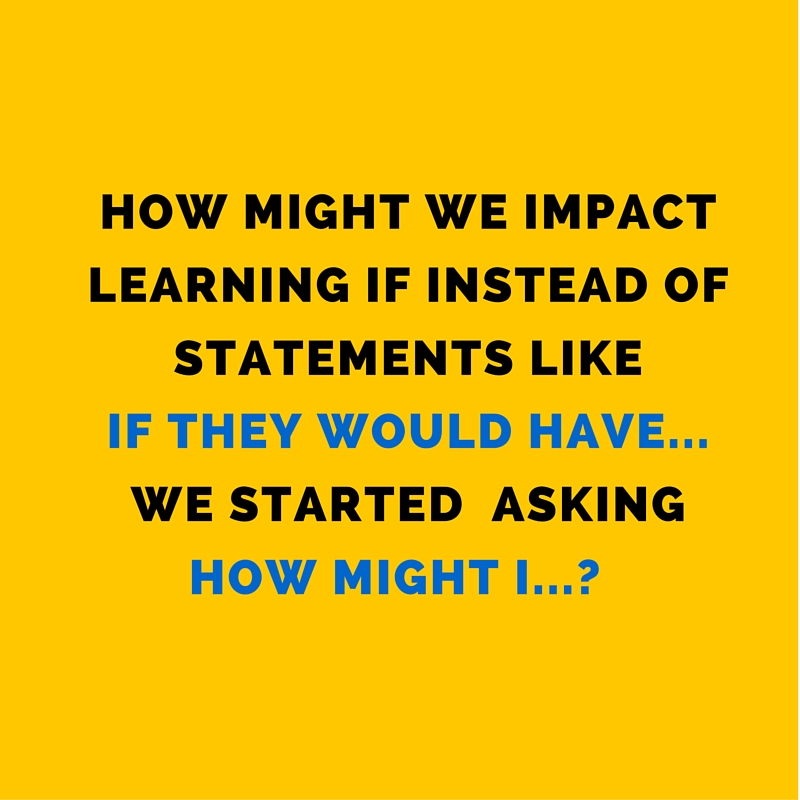 It’s easy to place blame on others when something doesn’t go the way that you expect. Think about how many times you may have heard or even said yourself something along the lines of “If only they would have…”
It’s easy to place blame on others when something doesn’t go the way that you expect. Think about how many times you may have heard or even said yourself something along the lines of “If only they would have…”
Chances are you have heard of felt the frustration of many teachers that, “If they would have taught them the correct (fill in the blank) skills in (fill in the blank) grade, I wouldn’t have to spend time reteaching them. This happens too often to be the fault of individual teachers –we have created a system where we keep adding more and expecting them to implement, learn or do. This results in a lot of surface learning and covering content but is still far from the deeper learning required to retain and apply the new knowledge in far too many instances.
If you think about it, this same mentality is prevalent throughout educational institutions. This is modeled when principals lament telling teachers about the new initiative, program or whatever it is they were supposed to do yet it hasn’t quite taken hold in classrooms or isn’t making the desired impact. Or the district office’s new initiative that doesn’t live up to the hype or even get off the ground. It’s devastating to have students lacking the necessary skills needed to build on year after year. However, instead of investigating and addressing the root cause, in most cases the tendency is to reteach in the same way that didn’t work the first time. Likewise, it’s costly and wasteful to have programs and resources that we spend a great deal of money on that sit largely unused. But then, time and time again, when they don’t work we move to the next program that repeats the same cycle.
It reminds me of this quote from Einstein–
Insanity: Doing the same thing over and over and expecting different results– Albert Einstein
This is the time to stop the insanity. If we continue to perpetuate the “I taught them but they didn’t learn it” mentality throughout education and place blame on others, how will we make the changes that our kids deserve. If we want innovative institutions that are going to develop the skills, knowledge and mindsets that our students need to be successful, we need to rethink our traditional systems and structures. Powerful learning will not happen by continuing to creating new expectations for others or adding on to what already exists– it’s will require individuals who are willing to forsake existing procedures and policies that don’t work.
Once we (in all roles) are willing to make changes in on our own practice, we can then work together to figure out how we can create better systems to improve learning and positively impact outcomes for our students. Change begins with individual actions and since we can’t change others (no matter how much we might try), we must begin with ourselves. Just think, how might we impact learning if instead of statements like, “If they would have… ” we started asking, “How might I…?”


0 Comments